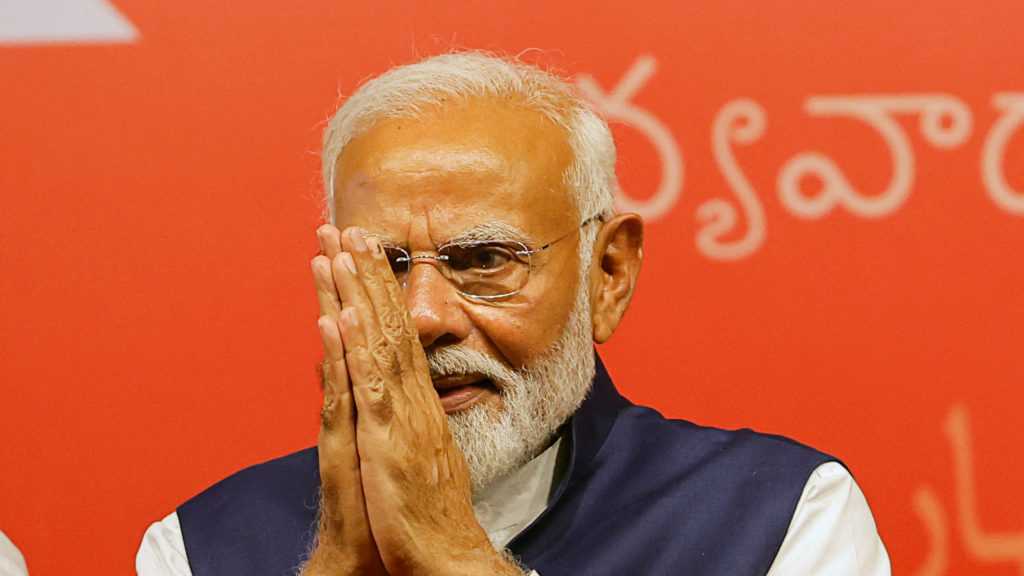Are the democratic countries of the world currently grappling with a leadership crisis? It seems that the public is bearing the brunt of the lack of inspiring leaders to steer or guide democratic systems. The current quality of leadership in countries like the US, the UK, Japan and India paints a grim picture.
The conspicuous absence of dynamic young leaders within both the ruling and opposition parties in India highlights a disturbing trend. Political institutions are moving towards functioning like closed private companies, hidden under a blanket of undemocratic practices. This lack of visionary leadership manifests itself at the regional level as ineffective governance, often dominated by family dynasties. Across the borders in countries like Pakistan and Bangladesh, a shadow of desolation looms over the political leadership landscape. While Bangladesh currently has a capable leader, his real test will be in coping with the growing pressure from extremist groups. On the contrary, Pakistan appears to be at a dangerous juncture as a failed state. The state of leadership in many democracies today is indeed a matter of concern. The youth and student wings, as well as trade unions, are no longer brimming with fresh young blood. In the past, political parties had a regular supply of young leaders from affiliated organisations such as Yuva Jan Sabha, SFI, Vidhyarthi Parishad, Rashtra Seva Dal and many more.
Unlike the visionary leaders of the past, modern democracies are facing a severe shortage of inspiring and effective leadership. Gone are the days of charismatic statesmen like Gandhi, Lincoln and Churchill, who guided nations through turbulent times with wisdom and integrity.
Political commentator Paras Nath Chaudhary says, “Today’s leaders often prioritise partisan interests over the larger good, leading to division and disillusionment. The dearth of visionary thinkers, strategic problem-solvers and people-oriented decision-makers has led to widespread discontent and a loss of confidence in institutions.” The lack of quality, visionary leadership can be attributed to many reasons, one of them being the unfortunate truth that politics is no longer attracting the best and the brightest. Instead, we see a rise in the number of individuals with mediocre abilities who adopt divisive tactics to gain power and try to appease a particular vote bank. Social activist Padmini Iyer says that the new ambitious generation focuses more on packages, lifestyle, perks and entitlements and less on working for social change.
Indeed, it is disheartening to see the political discourse turning into a battleground of insults and mudslinging, where troublemakers and opportunists dominate. These individuals exploit deep social divisions like casteism and communalism for their own benefit. Instead of upholding the great values of the past, they choose to sow seeds of discord and hatred among people, thereby further dividing an already fragmented society.
In a country like India, where the legacy of the freedom struggle should serve as a guiding light for the political class, it is sad to see how the ideals of unity, equality and progress have been overtaken by the politics of identity and exclusion. The rich fabric of ideologies that once defined major historical revolutions such as the French Revolution or the October Revolution seem like a distant echo in the current political landscape.
The political ideological vacuum has been filled by communal faith-based bigotry. A major reason for this decline in the quality of leadership is the failure of political parties to maintain standards of merit and integrity in their selection processes. Instead of prioritising merit, vision and dedication to public service, parties often prioritise personal loyalty, connections and the ability to influence certain voter demographics. This short-sighted approach not only harms the democratic process but also perpetuates a cycle of ignorance and mediocrity within the political elite. Moreover, the toxic influence of money and power in politics further aggravates the issue, driving away genuinely qualified individuals from the arena of politics. Ambitious leaders are discouraged by the brutal nature of modern politics, where personal attacks and character assassination have become the norm rather than the exception. The relentless pursuit of power at all costs has killed the real essence or self of democracy.
While the aim of politics should be to serve the people and pursue public welfare, how new individuals with clean image, integrity and dedication can enter politics is a question that all parties must ask. Political parties must make concerted efforts to attract talent from diverse backgrounds and create a more welcoming environment for capable individuals to contribute their skills and expertise for the betterment of society.





